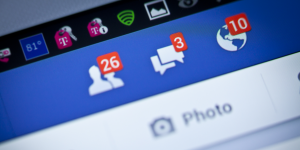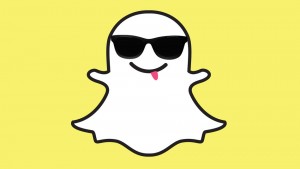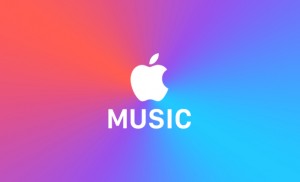Last week, Facebook announced that they would be commencing tests on their new ‘reactions’ interface, which is designed so people can express a more diverse range of emotions than just “liking” the post. Facebook is beginning real world testing in Ireland

Facebook should include this as one of their reactions. That would make my day.
and Spain, and if successful, will be releasing it to the rest of the world.
The ‘reactions’ interface will include a panel of six reactions: “like”, “love”, “haha”, “yay”, “wow”,”sad”, and anger. Although the company has been urged in the past to include a “dislike” button many times in the past, Facebook has resisted including this function, which adds a possible sense of negativity to the posts, which Facebook is trying to avoid. Here are some of my thoughts on the possible repercussions of this change.
1. Branding
The iconic “like” button has been a center point of Facebook’s brand since its inception in 2004. Will the introduction of these additional reactions tamper with Facebook’s branding?
2. Abuse/Misuse
Another concern that I foresee arising is the possiblity users on Facebook will misuse the icons as a joke. The reactions that have somewhat negative connotations such as “sad” or “anger” may see use out of context, which would be confusing for users on the receiving end, as well as marketers trying to evaluate the performance of specific posts.
3. Metrics
As mentioned briefly in point two, the measurability of Facebook posts has become more complex, which has its pros and cons for users, and for marketers.
Facebook’s decision to expand its selection of reactions has been called for by the general public for a long time. It seems like a small change, but in my opinion, will have a significant impact on how users interact, and how marketers publish content on social media. Lets see what happens!
Inspired by this article on Mashable –> http://on.mash.to/1LheRxc
 is revamping their messaging system. Currently, messages received from strangers are directed to a separate inbox than the main message inbox: the “Other” box. This often causes messages from strangers to be missed, since those on the receiving end do not get notified of the message. Facebook’s new Messenger feature, which notifies receivers in the form of a “message request” that they can check without the other person knowing, and therefore can choose to reply or ignore the message.
is revamping their messaging system. Currently, messages received from strangers are directed to a separate inbox than the main message inbox: the “Other” box. This often causes messages from strangers to be missed, since those on the receiving end do not get notified of the message. Facebook’s new Messenger feature, which notifies receivers in the form of a “message request” that they can check without the other person knowing, and therefore can choose to reply or ignore the message. is revamping their messaging system. Currently, messages received from strangers are directed to a separate inbox than the main message inbox: the “Other” box. This often causes messages from strangers to be missed, since those on the receiving end do not get notified of the message. Facebook’s new Messenger feature, which notifies receivers in the form of a “message request” that they can check without the other person knowing, and therefore can choose to reply or ignore the message.
is revamping their messaging system. Currently, messages received from strangers are directed to a separate inbox than the main message inbox: the “Other” box. This often causes messages from strangers to be missed, since those on the receiving end do not get notified of the message. Facebook’s new Messenger feature, which notifies receivers in the form of a “message request” that they can check without the other person knowing, and therefore can choose to reply or ignore the message. centered creatures by nature, and the provision of a front facing camera definitely satisfied an important need: the need to take photos of oneself. Since Snapchat is all about making faces, and showing the world what you are up to from a first person perspective, its logical that many people would hop on board.
centered creatures by nature, and the provision of a front facing camera definitely satisfied an important need: the need to take photos of oneself. Since Snapchat is all about making faces, and showing the world what you are up to from a first person perspective, its logical that many people would hop on board.
 presence, it is definitely not as outstanding as Apple’s
presence, it is definitely not as outstanding as Apple’s